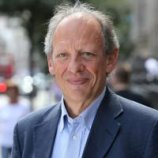Résumé
Over the past two decades a growing body of scientific evidence has accumulated supporting the role in cancer aetiology of factors that for convenience can be labelled “metabolic”, to differentiate them from chemical, physical and infectious carcinogens. These include diet, anthropometric characteristics, physical activity, some metabolic syndrome components and some aspects of sexual maturation and reproductive life (the latter, specifically in relation to some female cancers). The establishment of the EPIC cohort since the 1990s, has largely contributed to the identification of the role of some components of diets (particularly fruit, vegetables, dietary fibre, meat and dairy products), anthropometric factors (overweight/obesity, abdominal obesity and lack of physical activity), metabolic factors (insulin resistance, insulin like growth factors and endogenous sex-hormones) and inflammation in modulating cancer risk, particularly for the colon and rectum, gastric cardia, oesophagus (adenocarcinoma), breast, endometrium, ovary, kidney, liver, gallbladder, pancreas and thyroid. Overall, diet, obesity and sedentary lifestyle have emerged as major worldwide causes of cancer, other chronic diseases as well as of premature death. This knowledge paves the way to new opportunities for primary and secondary cancer prevention.

